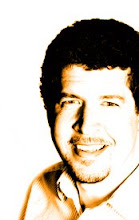This weekend I ran into Angie, a student at UMKC who heard me speak earlier in the week. She thanked me for the advice I had given. When I asked what helped the most, she simply answered "the basics."
Seems a good place to start. When starting your job search, these are the five essentials:
A Portfolio That Shows Off Your Skills. Your portfolio should consist of 12-15 of your best pieces. Keep in mind, I'm going to judge you by the worst piece in there. After all, nothing else you've ever done is as good – or it would be in there instead. Also, mix up the pieces. Don't show all the ads, then all the logos, etc. Keep the reviewer interested.
A Relevant Resume. I never hired anyone because they worked at Wal-mart while in college. And I damn sure never hired anyone because they were the rush chair for their sorority. Only cover the relevant, such as ad club, the school paper, internships, related jobs, even your ad campaigns class. Those things tell me about you as a creative. If you make me wade through the other crap, I may not see the things that matter to me.
Take Care of the Details. If you don't take care with your own resume and portfolio, what's to make me think you'll take care with my clients? Details matter. Details win or lose the job. Take care of them – spelling, production of your samples, the right name (and spelling) on the cover letter. Don't lose your dream job because you didn't take a few minutes to read everything over one last time.
Professionalism. If you come off as a student (by your dress, answers or demeanor) I'm not going to hire you. You need to come across as a professional. Dress right for the interview. Be prepared. Be polite. Be humble. Send a thank you note immediately after the interview. Act like a professional and I'll see you that way.
Make Me Remember You. If I don't remember you, I won't hire you. Do or show something that makes you stand out. We're interviewing lots of people and, I hate to admit it, sometimes people start to blend together. Be memorable.
There's your basic five needs. We'll address each of them in more detail.




